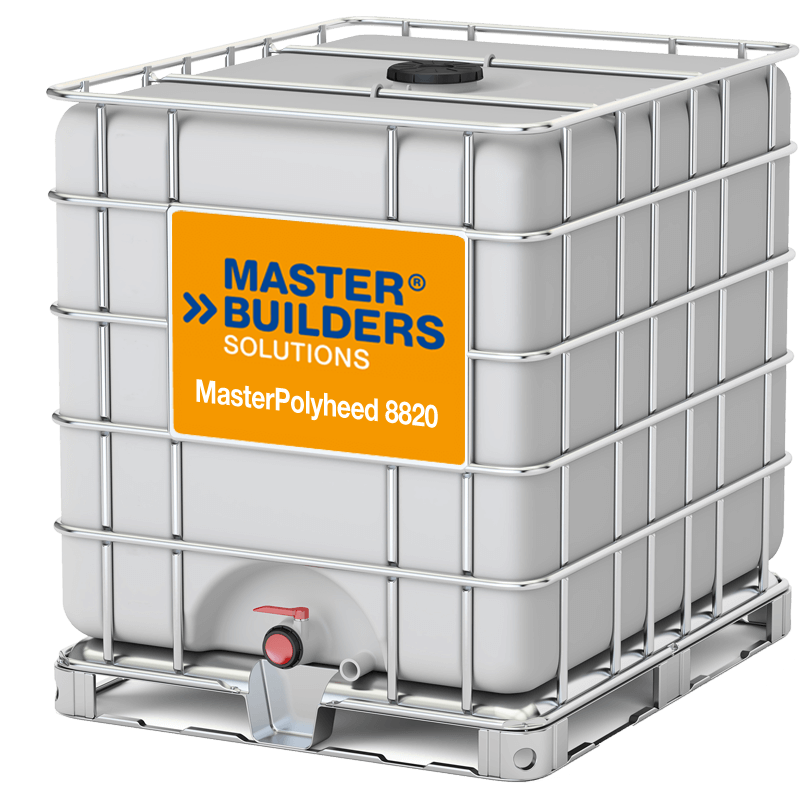MasterPolyheed 8820
New generation, normal to mid-range water reducer with superior slump retention, pumping and finishing
How does MasterPolyheed 8820 work?
MasterPolyheed 8820 is a multi-component non-chloride normal to mid-range water reducing admixture designed to improve the performance of concrete both in the plastic and hardened states. It is added to initial batch water at the batching plant. 
What makes MasterPolyheed 8820 unique solution?
MasterPolyheed 8820 is a versatile admixture able to produce and maintain mid-range slumps for extended periods without retardation. Its formulation contains materials able to improve the concrete’s workability and finishability.
What are the benefits of MasterPolyheed 8820?
In the plastic state:
- Normal setting characteristics throughout the recommended dose range
- Reduced segregation, particularly in lean mixes and mid slump concrete
- Superior slump retention
- Improved workability
- Improved pumpability
- Reduced water content for a given workability
- Enhanced finishability
- No added chlorides, conforms to the most stringent chloride ion limits including AS3600 concrete structures code, will not initiate or promote the corrosion of reinforcing steel
- Increased strength – compressive, flexural and bond (concrete to steel)
- Superior finished appearance
- Increased density and durability
- Reduced permeability – improved water tightness
- Reduced cracking
- Reduced shrinkage and creep
Direct contact
Downloads
MasterPolyheed 8820 SDS Australia
MasterPolyheed 8820: Technical Data Sheet
